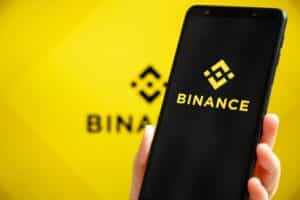
South Korea Tightens Reserve Requirements for Crypto Exchanges
South Korea’s digital assets landscape is set to operate within a tighter regular climate starting in September. The new directive mandates that all South Korean crypto exchanges utilizing real names for their bank accounts run a reserve fund with a minimum of $2.3 million.
The new reserve requirement targets to improve consumer protections. It mandates the crypto exchanges to set aside 3 billion won as a safeguard within the bank accounts. The new requirements are set to apply to the crypto exchanges granted accounts from the real-name banks.
The tighter embrace of reserves requirements features in the Virtual Asset Real-Name Account Operation Guidelines issued in July by the Korea Federation of Banks (KFB). The KFB document identified real-name accounts as clients who have satisfied the know-your-customer (KYC) details similar to the one in the bank.
KFB Cap Reserve Fund Maximum at 20B Won
The guidelines impose a 3 billion won as the minimum balance for the cash reserves. The reserves should correspond to 30% of the daily average deposit executed by the crypto exchange. However, the reserve fund is capped at a maximum of 20 billion won.
Although enforcing the measures implies imposing further expenses, leading crypto exchanges in South Korea would not face any challenge to comply with the directive. As such, the high trading volumes in Upbit and Bithumb make the two unlikely candidates to face compliance difficulty.
A spokesperson from Upbit indicated that as the leading crypto exchange in South Korea, it would faithfully implement the guidelines. Bitcoin echoed a similar promise by assuring it was actively preparing for the new measures and expected no hitch in compliance.
Smaller trading platforms are bound to face challenges in complying with the directive. A review of their operations indicates that platforms with restricted coin-only markets alongside those lacking crypto-to-fiat pairs would face implementation challenges.
Small and Medium-Sized Exchanges Adjust to Salvage Trade Volumes
The exchanges operating without bank accounts would not accumulate the reserves funds. Nonetheless, several of the platforms have negotiated with banks to run accounts. Doing so is important to survive in the market while complying with the provisions of the Specific Financial Information (SFI) Act enacted in 2021.
The SFI targets regulating the reporting and utilization of specified financial information during transactions to avert money laundering and illicit financing. The exchanges admitted that failure to comply with the SFI would translate to decreased trading volumes. Such arises from traders who would readily move to larger exchanges enforcing comprehensive compliance policies.
An illustration of the exchange that was negotiated with the bank is Hanbitco. The negotiation allowed the exchange to secure an account through an anonymous representative of the virtual asset sector. Such arrangements portray the last train that would change as soon as the regulations become effective in September.
The KFB outlined several standards within the newly released operating guidelines. In particular, KFB outlined the enhanced customer authentication procedure captured in the new KYC version due for implementation in January 2024.
FSC Crypto Exchanges to Furnish Additional Details
Meanwhile, South Korea is set for a tighter regulatory climate for the digital assets landscape as the Financial Services Commission (FSC) released additional requirements in July. The new rules would become enforceable in January 2024.
The regulations compel local firms involved in issuing or owning cryptos to offer detailed disclosures on the nature of tokens, amounts, and business models. The new rules compel the firms to disclose the internal accounting policies on crypto sales and attributed profits.
Bank of Korea Mandated to Supervise Cryptocurrency Entities
South Korea is cementing itself as a jurisdiction to advance regulatory clarity for digital assets. The new directive approved by the legislative body seeks to reduce the incidences of crisis that would adversely affect the users’ digital wealth.
The amended framework features 19 distinct crypto asset-related bills. The framework empowers the Bank of Korea (BOK) and the Financial Services Commission (FSC) to undertake supervisory responsibilities on the crypto entities and operators guarding digital assets.
The chief secretary of the Korea Blockchain Enterprise Promotion Association (KBEPA), Lee Ryung, lauded the legislation for empowering the BOK to impose the sanctions. Doing so at the onset of the crisis would avert contagious crisis following the detection of inequitable virtual asset transactions.




